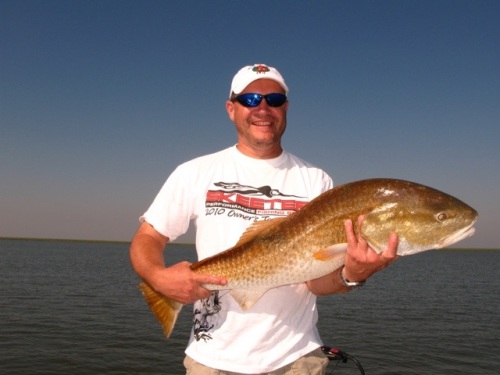 The sun was high overhead as our Skeeter center console shot through the narrow canals of the marsh. Pushing out into open water a spoonbill crane launched skyward, its pink wings stretching out into graceful flight.
The sun was high overhead as our Skeeter center console shot through the narrow canals of the marsh. Pushing out into open water a spoonbill crane launched skyward, its pink wings stretching out into graceful flight.
The Vanishing Paradise team was holding court for 3 days out of Ryan Lambert’s Cajun Adventures lodge in Buras, Louisiana with the editorial teams from Field and Stream and Outdoor Life. The event was generously sponsored by Vanishing Paradise/National Wildlife Federation, Top Brass Tackle, Bomber/Heddon Lures, HuntDucks.com, Frabil, Wiley X, Berkley Pro Fishing, Fowl Play Game Calls, and Marsh Works
We spent three days of fishing and three days of educating America’s premier sportsmen’s publications on the threats to wildlife and habitat facing Louisiana’s coastline. But it didn’t take much to educate this knowledgeable group – in fact many here were already acutely aware of the challenges the area is experiencing. America’s sportsmen’s paradise is in severe decline – and it amounts to a crisis for hunters and anglers across the country.
“If we let these wetlands fall, what’s next,” proclaimed Vanishing Paradise’s Land Tawney. “This ecosystem is directly connected to the Prairie Potholes along the U.S./Canada border as well as the entire Mississippi flyway – the cost to American waterfowlers alone is too great to comprehend.”
Anglers, too, have much to be concerned with. “This is one of the best places to fish on the planet,” said Eric Cosby of Top Brass Tackle. “There are many great places to fish, but the Louisiana wetlands represent the best there is – from 200-pound-class offshore tuna to the magnificent bull reds inshore and within the marsh itself – pound-for-pound the action is unbeatable.”
The good news is that shortly after our trip with Field and Stream and Outdoor Life the U.S. Congress passed a troubled Transportation bill. Contained within was the Restore Act – a piece of legislation that sends 80 percent of BP oil spill fines under the Clean Water At directly into coastal restoration. This will be an estimated $3-$18 billion just for restoring this sportsmen’s paradise.
“This has the potential to be the greatest influx of conservation dollars in history,” Tawney said. “It took 75 years for Pittman-Robertson, Dingell-Johnson and Wallop-Breaux to put $14 billion into the system. We may bypass that amount in one fell swoop.”
So what’s next? Each gulf state must put together a plan for this funding, and Louisiana has already approved a robust state master plan to use these dollars efficiently.
As for Field and Stream and Outdoor Life – the fight to educate Americans on the value, wealth of habitat and wildlife continues. Sportsmen across this nation continue to work hard to ensure our legacy survives and that those who come after us have the same opportunities we did to hunt and fish.
